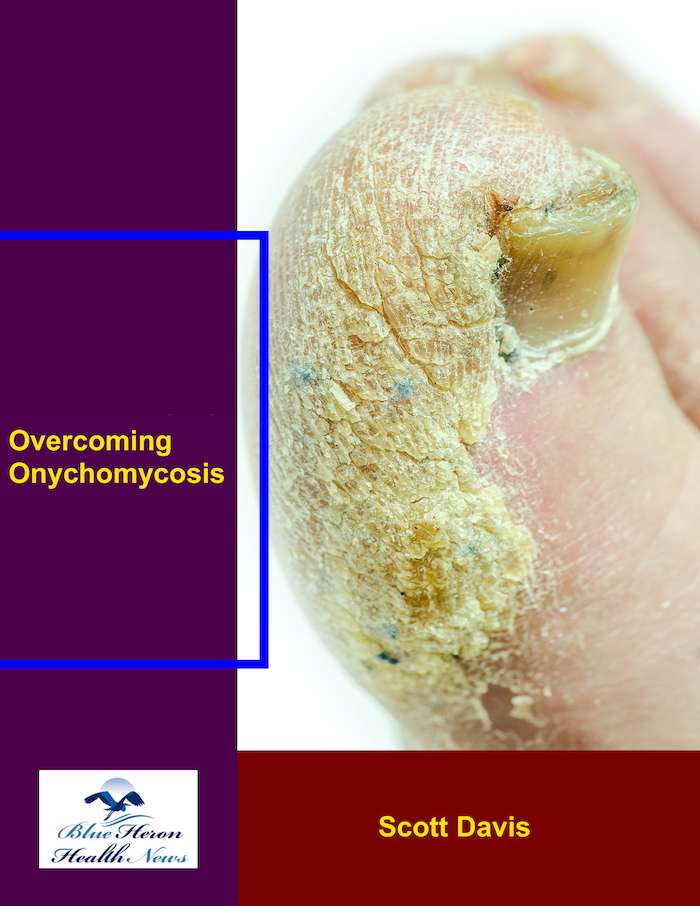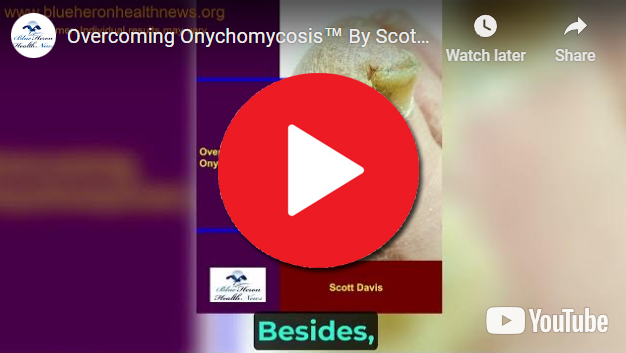
Overcoming Onychomycosis™ By Scott Davis It is a simple, natural, and all-in-one solution for onychomycosis. The program can help you to treat your nail fungus naturally. Once you follow this program, you do not need to spend on expensive treatments to prevent a recurrence. In brief, you can have a proven solution for your chronic nail fungus. Besides, the program is easy to follow, and most users find it effective against onychomycosis.
What are the benefits of a high-fiber diet for hemorrhoid prevention?
A high-fiber diet is one of the most effective ways to prevent and manage hemorrhoids, as it helps reduce the risk of constipation and the associated straining during bowel movements, both of which are major contributors to hemorrhoid development. Here are some key benefits of a high-fiber diet for hemorrhoid prevention:
1. Prevents Constipation
- Softens stools: Fiber adds bulk and moisture to the stool, making it softer and easier to pass. Softer stools reduce the need for straining, which is a primary cause of hemorrhoids.
- Regulates bowel movements: A high-fiber diet promotes regular bowel movements by improving the efficiency of the digestive system. Regular, smooth bowel movements reduce the likelihood of developing hemorrhoids.
2. Reduces Straining During Bowel Movements
- Less pressure on the rectum: Straining during bowel movements puts pressure on the blood vessels around the anus, which can lead to swollen, painful hemorrhoids. By preventing constipation, a high-fiber diet reduces the need to strain and helps maintain healthy anal tissue.
3. Improves Digestive Health
- Promotes gut motility: Fiber helps move food through the digestive tract more efficiently. This reduces the time stools spend in the colon, which prevents the stool from becoming too hard and dry, which could require straining.
- Supports beneficial gut bacteria: Fiber acts as a prebiotic, feeding the beneficial bacteria in the gut. A healthy gut microbiome supports digestion and reduces inflammation, which may further prevent hemorrhoid development.
4. Helps Maintain Healthy Weight
- Promotes fullness and satiety: High-fiber foods tend to be low in calories but high in volume, which helps you feel full longer. This can aid in weight management, which, in turn, reduces the risk of hemorrhoids. Obesity or excess weight, especially abdominal fat, can put pressure on the veins in the rectum and anus, leading to hemorrhoid formation.
5. Reduces the Need for Laxatives
- Natural laxative effect: A high-fiber diet provides a natural, gentle laxative effect that promotes bowel regularity, reducing the reliance on chemical laxatives. While laxatives can be helpful in emergencies, overuse can lead to dependence or worsen digestive problems. Fiber is a safer, more sustainable solution.
6. Improves Anal Health
- Promotes smoother passage of stools: With a high-fiber diet, stools are less likely to be hard, dry, or difficult to pass, reducing the chances of causing anal fissures or irritating hemorrhoids. This is especially important for people who are prone to conditions like anal fissures, which often accompany hemorrhoids.
7. Reduces Inflammation
- Anti-inflammatory effects: Fiber, especially soluble fiber, can help reduce inflammation in the digestive tract. Inflammatory conditions like inflammatory bowel disease (IBD) can increase the risk of hemorrhoids, and fiber can help prevent flare-ups by soothing the digestive system.
8. Supports Long-Term Hemorrhoid Prevention
- Ongoing digestive health: Consistently consuming a high-fiber diet supports long-term bowel health, helping to prevent recurring hemorrhoids. Over time, maintaining good bowel habits reduces the likelihood of future hemorrhoid flare-ups.
High-Fiber Foods to Include:
- Fruits: Apples, pears, berries, bananas, oranges
- Vegetables: Carrots, spinach, broccoli, kale, zucchini
- Whole grains: Oats, whole wheat bread, brown rice, quinoa
- Legumes: Lentils, beans, chickpeas
- Nuts and seeds: Almonds, chia seeds, flaxseeds
Tips for Incorporating Fiber into the Diet:
- Gradual increase: If you’re not used to a high-fiber diet, increase fiber intake gradually to avoid bloating or gas. Rapid increases in fiber may upset the digestive system.
- Drink plenty of water: Fiber works best when accompanied by adequate hydration. Drink plenty of water throughout the day to help fiber do its job in softening stools and promoting bowel regularity.
- Balance with other nutrients: While fiber is essential for digestive health, make sure your diet is balanced with proteins, healthy fats, and other vitamins and minerals for overall health.
Conclusion
A high-fiber diet is a cornerstone of hemorrhoid prevention, as it promotes regular, healthy bowel movements, reduces the need for straining, and supports overall digestive health. By including a variety of fiber-rich foods in your daily meals and ensuring proper hydration, you can significantly reduce the risk of developing hemorrhoids and improve your overall well-being.
Probiotics can play a supportive role in the healing of hemorrhoids by promoting digestive health, improving bowel regularity, and potentially reducing inflammation. While they may not directly cure hemorrhoids, they can contribute to a healthier gut environment, which in turn can support the healing process. Here’s how probiotics might help with hemorrhoid healing:
1. Promotes Healthy Bowel Movements
- Supports digestion: Probiotics are beneficial bacteria that help maintain a balanced gut microbiome, which plays a crucial role in digestion. By enhancing the digestion of food, probiotics can help prevent constipation and improve the regularity of bowel movements.
- Prevents straining: Probiotics can help soften stools and make them easier to pass, reducing the need for straining during bowel movements. Straining is one of the primary causes of hemorrhoids, so reducing it helps minimize pressure on the rectal area, aiding in healing.
2. Reduces Constipation
- Relieves constipation: One of the main causes of hemorrhoids is constipation, which leads to hard, dry stools that are difficult to pass. Probiotics can help improve the balance of gut bacteria, which can in turn support the natural processes of bowel regularity and reduce the occurrence of constipation.
- Improves gut motility: Probiotics can enhance the motility of the digestive tract, which helps food move through the intestines more efficiently. This can result in more regular and comfortable bowel movements, reducing the chances of hemorrhoids worsening due to straining.
3. Reduces Inflammation
- Anti-inflammatory effects: Some strains of probiotics have anti-inflammatory properties, which can help reduce inflammation in the digestive tract. Since hemorrhoids are essentially inflamed blood vessels, reducing general inflammation in the body can contribute to a reduction in hemorrhoid symptoms.
- Soothing effect on the gut: By balancing gut bacteria, probiotics can help soothe the gastrointestinal tract and reduce gut inflammation, which may help prevent irritation or discomfort associated with hemorrhoids.
4. Supports Gut Health and Microbial Balance
- Gut flora balance: A healthy balance of gut bacteria is essential for overall digestive health. Disruptions to the microbiome, caused by factors like poor diet, stress, or antibiotics, can lead to digestive issues that may contribute to constipation and hemorrhoids. Probiotics help restore the balance of good bacteria, promoting overall gut health.
- Digestive system repair: Probiotics help with the repair and maintenance of the intestinal lining, which can be beneficial if there are any digestive disruptions related to hemorrhoids, such as irritation or mild inflammation.
5. Improves Immune Function
- Strengthens the immune system: A healthy gut microbiome supports immune function. Probiotics can help boost the body’s immune response, which can be beneficial for the overall healing process, including the healing of inflamed hemorrhoids.
- Potential protection against infections: By improving gut health and immune function, probiotics may help prevent infections or complications that could arise from hemorrhoids, such as anal fissures or skin irritation.
6. Helps with Gut Motility and Stool Consistency
- Promotes better stool consistency: Probiotics may help maintain optimal stool consistency, which is important for preventing hemorrhoids. Soft, well-formed stools are easier to pass and reduce the risk of causing further strain on the rectum and anus.
- Better gut motility: Probiotics support the natural motility of the digestive system, encouraging regular bowel movements and reducing constipation-related strain.
7. Supports Overall Digestive Health
- Comprehensive digestive support: A healthy gut microbiome is key to overall digestive function. By maintaining proper digestion, absorption of nutrients, and gut flora balance, probiotics help keep the digestive system running smoothly, preventing conditions that could exacerbate hemorrhoid symptoms.
8. Helps Manage Gut-Related Stress
- Reducing stress on the digestive system: Probiotics may help reduce gut-related stress or discomfort, which can improve overall digestive function. Since stress is a contributing factor to gut issues such as constipation, calming the digestive system can indirectly help manage hemorrhoids.
Probiotic Sources for Hemorrhoid Support:
- Fermented foods: Natural sources of probiotics include yogurt, kefir, sauerkraut, kimchi, miso, and kombucha. These foods provide beneficial bacteria that can support digestive health.
- Probiotic supplements: If dietary sources are insufficient or you need a higher dose of probiotics, supplements containing strains like Lactobacillus and Bifidobacterium can be beneficial for promoting gut health.
Conclusion
While probiotics may not directly cure hemorrhoids, they play an important role in supporting overall digestive health, improving bowel regularity, preventing constipation, and reducing inflammation, all of which are essential for managing and healing hemorrhoids. Incorporating probiotics into your diet, whether through foods or supplements, can help prevent constipation and support the healing process by creating a healthier gut environment. Always consult with a healthcare provider before starting any new treatment or supplement, especially if you have underlying health conditions.
Overcoming Onychomycosis™ By Scott Davis It is a simple, natural, and all-in-one solution for onychomycosis. The program can help you to treat your nail fungus naturally. Once you follow this program, you do not need to spend on expensive treatments to prevent a recurrence. In brief, you can have a proven solution for your chronic nail fungus. Besides, the program is easy to follow, and most users find it effective against onychomycosis.
